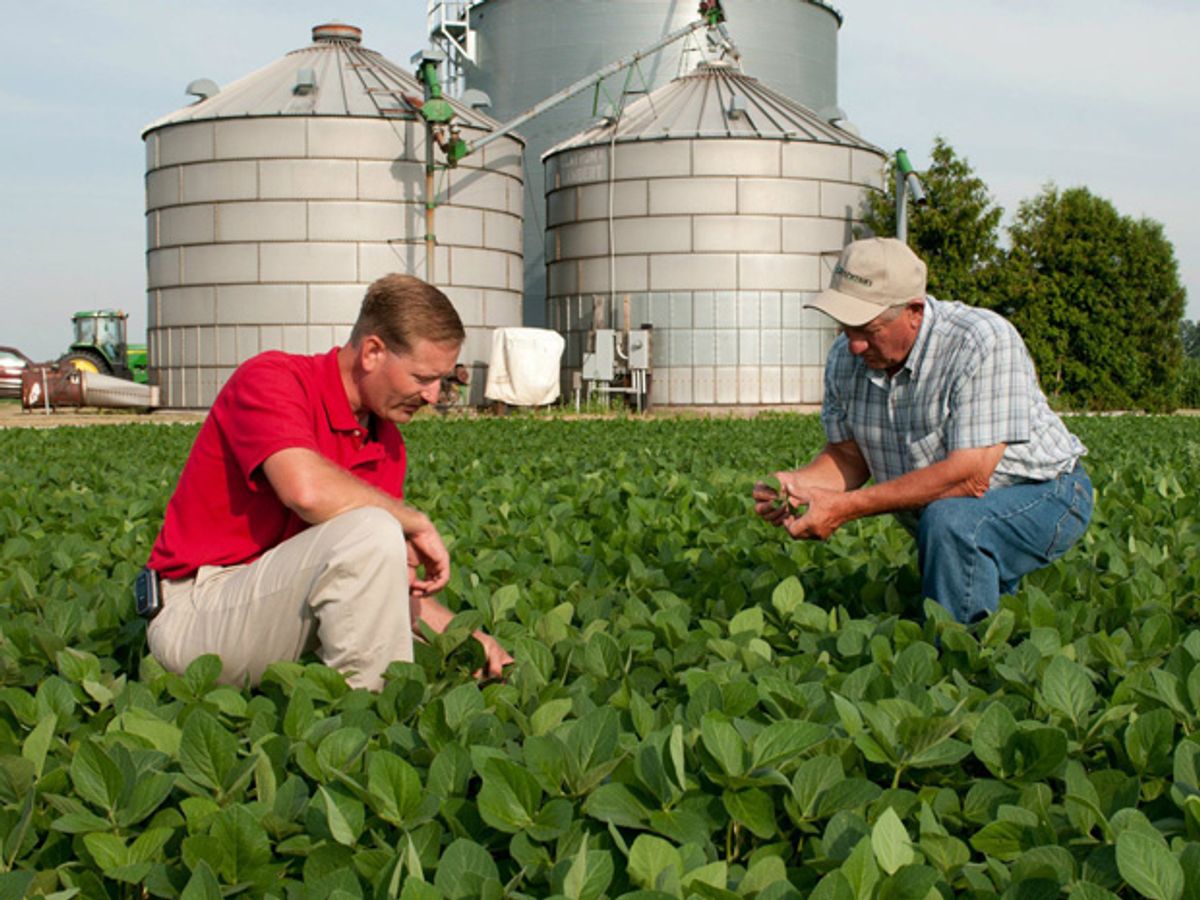Agriculture giant Monsanto, best known for spreading the use of biotechnology in farming, now sees data science as a key technology to further increase crop yields.
The company yesterday bought a San Francisco start-up called the Climate Corporation to bring customized crop information and insurance to farmers seeking ways to get the most out of their fields. The acquisition for $930 million brings Climate Corp. into Monsanto's Integrated Farming Systems business, which is set to commercially launch its services next year.
Climate Corp. offers farmers a very familiar product: crop insurance to hedge against weather-related losses and a drop in revenue. But the seven-year-old start-up, which was founded by the former product manager for AdWords at Google, has taken a decidedly high-tech approach. Using commonly used weather and agronomic data, it can provide insurance and recommend when it’s best for farmers to irrigate, apply chemicals, harvest, or plant. Farmers can also use a Web-based dashboard to track current weather and soil conditions and forecasts.
The company collects data such as rainfall measurements from radar systems maintained by the National Oceanic and Atmospheric Administration (NOAA) and local temperature from National Weather Service monitors. It also calculates soil moisture based on geography-specific readings from the NASA-run North American Land Data Assimilation System.
Using these types of data sources, Climate Corp. creates a profile of a specific plot within a specific farm. Using Doppler radar imagery, for example, the company's software can estimate rainfall for the next day within a 2.5 square-mile plot. The insurance products are based on research that quantifies the impact of weather on yield, according to the company. Its software models can estimate how excess rain, for example, during the early growth period for corn will affect yield at the end of the season.
Because the insurance is based on data, rather than an audit by an insurer, a farmer is automatically paid when weather events affect crops. Its software also quantifies the risk associated with potential weather events, generating 10,000 weather scenarios for every location over the next two years, CEO David Friedberg told Wired.
Applying analytics to satellite and sensor data to get more food from a given parcel of land is becoming increasingly important, say experts. Practices, such as precision agriculture, allow farmers to apply the optimum amount of fertilizer, water, and pesticides while minimizing the environmental impact of industrial farming.
As a business, Monsanto has focused on seed production and pesticides. (See Everything You Always Wanted to Know About Big Ag.) Incorporating data analytics will allow it to recommend its current products based on specific soil types and projected weather conditions to optimize yield, says Ted Crosbie, integrated farming systems lead. "When you start thinking about mapping all the layers of data 400 million acres worldwide, you rapidly realize this is truly gigantic data," he says in a company video.
Monsanto intends to expand Climate Corp.'s service to cover different crops and more areas, the company says.
Image: The Climate Corporation


